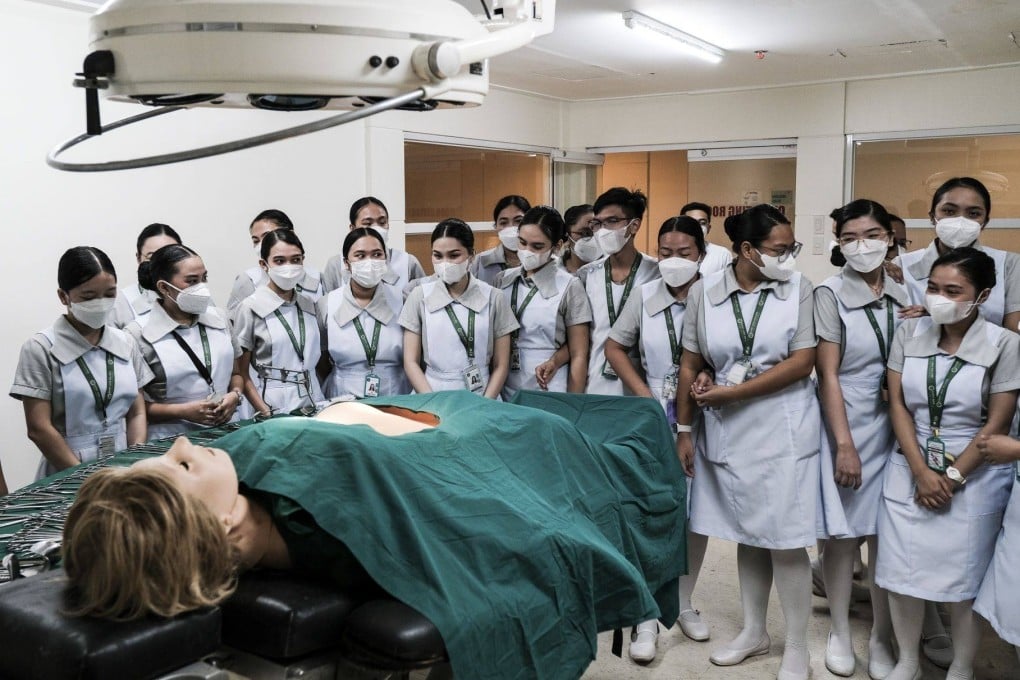Advertisement
From Singapore to the UAE, demand for Philippine nurses sparks bidding war amid global talent shortage
- Many countries are stepping up efforts to lure foreign nurses and other medical professionals with promises of expedited visas and better pay
- No nation is better prepared to help the world staff up its hospitals and clinics than the Philippines, the single largest exporter of nurses
Reading Time:4 minutes
Why you can trust SCMP

The toll of nearly three years of Covid-19 includes millions of nurses broken by punishing hours and low pay, many of whom quit the profession and left hospitals dangerously short of critical staff.
Now with pandemic-related travel restrictions easing, countries from Germany to the United Arab Emirates and Singapore are stepping up efforts to lure foreign nurses and other medical professionals with promises of expedited visas and better pay.
Second-year nursing student Elaine Nicole Torres, from the Philippines, wants to help fill that gap – forecast by the International Council of Nurses to widen to 13 million in the coming years. She’ll graduate at an opportune time, with the global healthcare staffing sector expected to grow 6.9 per cent a year to US$63 billion by 2030, according to Grand View Research.
Advertisement
“You’ve got this mismatch between the supply of nurses and demand for healthcare,” said Howard Catton, chief executive officer at the Geneva-based ICN. “It has become much more competitive.”
Health professionals have been migrating for decades. The US and UK have the largest number of foreign-trained nurses among Organisation for Economic Co-operation and Development (OECD) countries, but they are more heavily concentrated in other nations. Before the pandemic hit, roughly one-in-four nurses in New Zealand and Switzerland had studied abroad, the highest ratio among the OECD’s 38 member states.
Advertisement
Advertisement
Select Voice
Choose your listening speed
Get through articles 2x faster
1.25x
250 WPM
Slow
Average
Fast
1.25x